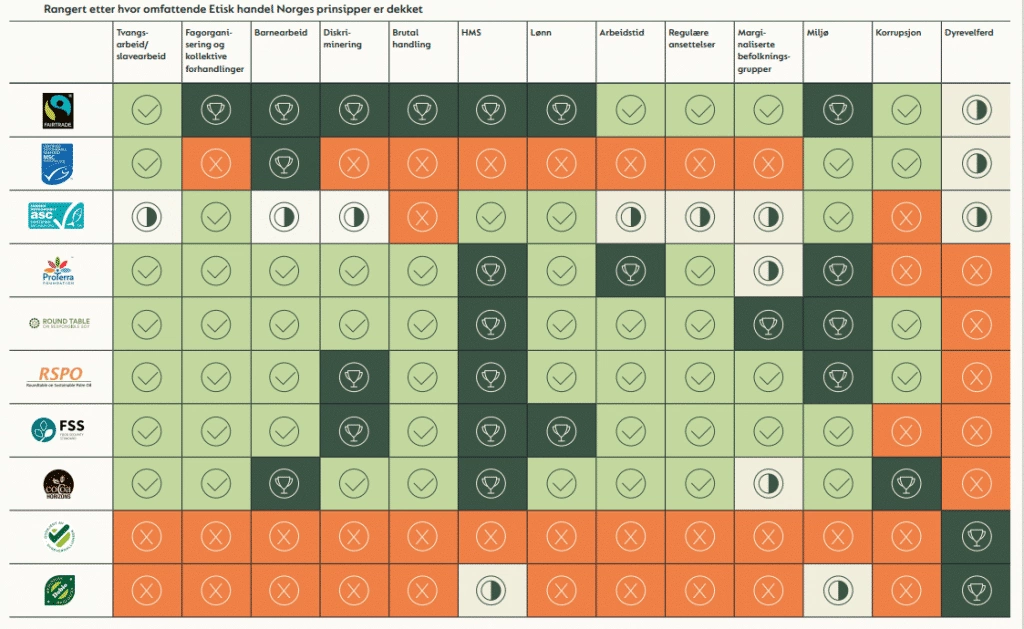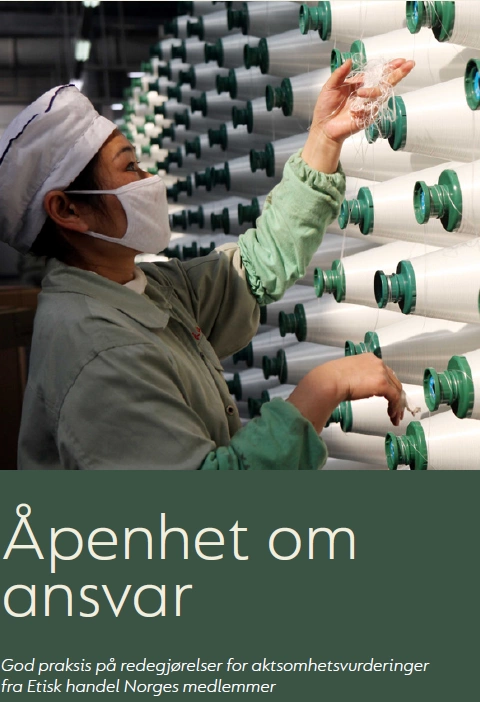Etisk handel Norge sin årsrapport for 2023

Vi har derfor også kunnet styrkemedlemstilbudet vårt med å ansette flere medlemsrådgivereog antall årsverk er økt fra 10,3 til 12,9. Les årsrapporten her. Den store interessen for bærekraftig forretningspraksis og medlemskap, er en kombinasjon av medlemsanbefalinger til leverandørerog forretningsforbindelser, den norske åpenhetsloven og lovkrav fra EU. Etisk handel Norge utvider nå sitt medlemstilbud på grunn […]
Vi lanserer oversikt over ulike merke- og sertifiseringsordninger

Mange virksomheter bruker sosiale sertifiserings- og merkeordninger som ett av flere tiltak i sitt arbeid med aktsomhetsvurderinger og leverandøroppfølging. Det finnes svært mange ulike ordninger og det kan være vanskelig å vite hva som er forskjellen mellom dem. Bruken av slike ordninger krever derfor at den som stiller krav vet hva ordningene innebærer og bruker […]
Hva er en god redegjørelse for aktsomhetsvurderinger?

Svaret får du i Etisk handel Norges publikasjon Åpenhet om ansvar som inneholder god praksis fra våre medlemmer samt veiledning og tips til arbeidet med aktsomhetsvurderinger.